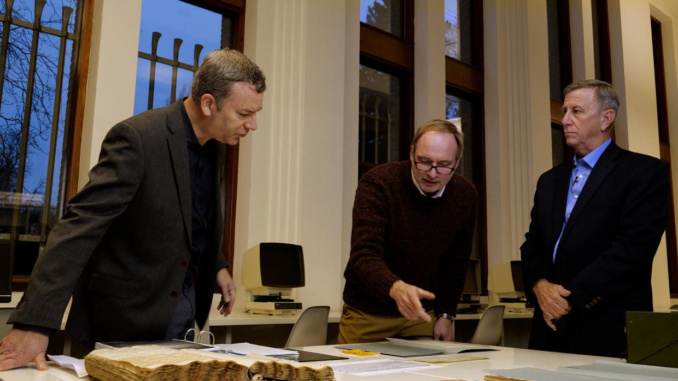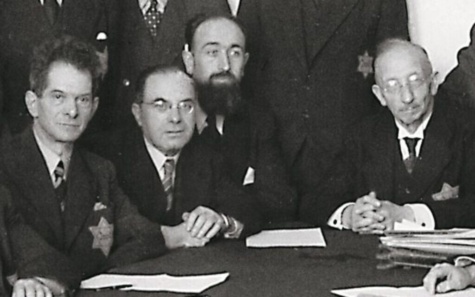
Helene MacBeth | Writer
January 19, 2022
Of all of the Jewish families that were forced into hiding during Nazi raids, the Franks, who hid in a secret annex for 761 days, are by far the most known. One member of the family, Anne Frank, kept a diary where she described her experience of living in constant fear. This diary has been translated into several languages and has sold to millions of copies around the world, bringing light to the jewish perspective in a period where genocide nearly silenced an entire race.
The diary does not have a formal ending, since Anne Frank was taken away to a concentration camp where her and her sister died. Her father, Otto Frank, was the only member of the family to survive the war, and he eventually found her diary and decided to publish it. Naturally, as the diary began to expand in popularity, questions arose about who betrayed the Frank family by revealing the location of their secret annex. Of course, Otto Frank questioned who had caused the murder of his family, but he eventually stopped seeking answers after years of investigation.
Freshman Talyn Pelkey questioned who betrayed Anne Frank and her family was ever since reading Anne Frank’s diary. “I always wondered how the Nazis found Anne Frank all of a sudden,” Pelkey said. “There is no way they could have found them without clues or hints given to them by someone else.”
Although several searches were conducted throughout the years, the suspects that the police questioned were all considered dead ends, and the case remained a mystery for seventy five years. However, 2016 brought new questions about the betrayal, and FBI agent Vince Pankoke looked into the case once again, wanting answers.
Even though everyone involved in the case was now dead, Pankoke was determined to find answers, and looked through the files of all the old suspects despite the lack of completeness and accuracy in the files. Since the betrayal of Dutch people to the Nazis was considered a criminal offense, the investigation was set up as a cold case.
The investigators involved in the cold case had many suspects, but slowly ruled them out one by one. Wilhelm van Maaren, the prime suspect, was an employee in the workhouse and was known as a thief. However, investigations on Maaren were inconclusive, and he publicaly denied betraying the Franks.

Eventually, the FBI landed on Arnold van den Bergh, who was a Jewish man with a family of his own. They discovered that he served on the Jewish Council, in which he would find and collect Jews in exchange for his own freedom. Although this council collapsed prior to August 4, 1944, when the Franks were discovered, the investigators were suspicious of the fact that he was roaming the streets freely around this time. The other members of the Jewish Council he rest were sent to concentration camps.
Though Bergh seemed a likely suspect, there was no actual evidence to support the claim that Arnold van den Bergh turned in the Franks. The motive was there, but evidence was not.
However, it was soon discovered that shortly after his liberation from the Auschwitz concentration camp, Otto Frank received a letter from an anonymous writer claiming that Arnold van den Bergh was the man who betrayed his family. Although Otto Frank received this letter, he did not share it, and merely made a typed copy. This typed copy was found by the FBI.
Finding this letter assured the investigators that they were on the right track. They soon discovered records that proved that someone from the Jewish Council had been keeping track of addresses of the Jewish people in hiding. Arnold van den Bergh looked horribly suspicious.
But if van den Bergh really betrayed the Franks and Otto Frank knew about it, why wouldn’t he have said anything? Of course, Otto Frank wanted to know who was responsible for putting him and his family through the atrocious betrayal and torture and pain of the concentration camp, so wouldn’t he have informed the police of any information on a lead?
Even though Otto Frank was probably vengeful and loathed his betrayer, it is important to remember that antisemitism didn’t vanish after the war. Jewish people still faced discrimination and dehumanization even after they were released from the concentration camps. The Nazi influence was deeply embedded into society, and it would not go away easily.
“Otto Frank obviously wouldn’t reveal the potential betrayer of his family if it was going to put other Jewish people at risk,” junior Kalya Fishel commented. “Exposing the betrayer probably would’ve made everything worse for Jewish people, including himself. Giving people the answers that they want would not be better than keeping antisemitism to a minimum.”
Otto Frank knew this, and most likely did not want to paint fellow Jews in a negative light. The Holocaust was a torturous time for all Jewish people, and painting Jews as betrayers or liars would likely inflict even more torture upon them. Although it is impossible to know exactly Otto Frank’s thought process, the reasons he might have had for keeping his betrayer a secret make sense.
Though this theory is convincing and logical, it has not been proven and declared accurate. Many Holocaust students and experts doubt the theory, claiming that it lacks evidence and reliable sources. Doubt of the theory increased when scholars found the sources investigators used to determine that the Jewish Council was revealing addresses of Jews to be unreliable.
The case may not be developed enough to definitively call Arnold van den Bergh the betrayer of the Frank family, but the information gathered from the investigation cannot be disregarded.

Leave a Reply